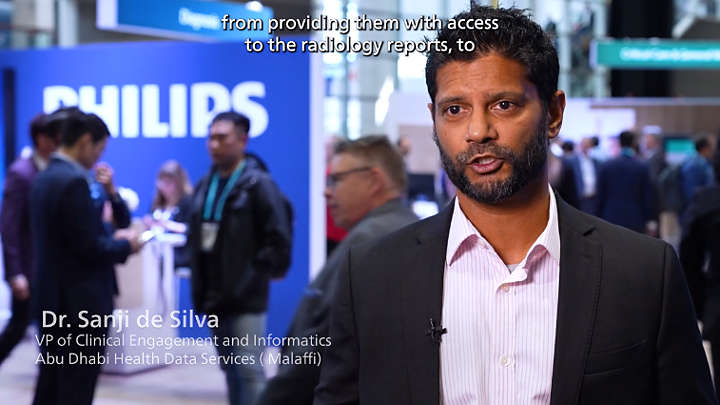Unleash true remote diagnostic imaging workflows to see beyond
By Philips ∙ 十一月 30, 2023 ∙ 3 min read
Remote image diagnosis and sharing are viable, highly practical and relatively easy to set up. It can help improve productivity, reduce office space requirements, alleviate burnout and more. For remote practice to be effective, radiologists should have access to a similar experience as those working on site. This requires attention to data security, efficiency, collaboration and engaging patients in their care.
Whitepaper
Optimizing workflows and data security for remote radiologists
Subscribe to our email updates
This whitepaper focuses on

84% of new radiologists rate remote work as very important, according to a recent nationwide poll.
Optimizing workflows and data security for remote radiologists
One challenge all health systems face is protecting patient data. Working remotely requires an extra layer of security between the radiologist and the server. Organizations typically choose from three security options for remote radiology workspaces.
The hospital or health system should ensure that remote radiologists have access to the same features, tools and functionality in a single application to optimize remote performance.
Collaboration between clinicians is essential to improving health outcomes, organizations must prioritize access and communication between clinicians. They must have effective collaboration tools, as well as the ability to seamlessly review images to provide a second opinion or plan clinical treatments.
Patients have developed a consumer mindset regarding their healthcare. They expect a similar experience they have when engaging with financial or retail companies online. It’s vital to provide them with results, images and information to help guide and involve them in their healthcare decisions.
Footnotes
[1] Neitzel E, vanSonnenberg E, Markovich D, Parris D, Tarrant J, Casola G, Mamlouk MD, Simeone JF, The New Normal or a Return to Normal: Nationwide Remote Radiology Reading Practices after Two Years of the COVID-19 Pandemic Journal of the American College of Radiology (2023), doi: https://doi.org/10.1016/j.jacr.2023.04.014


